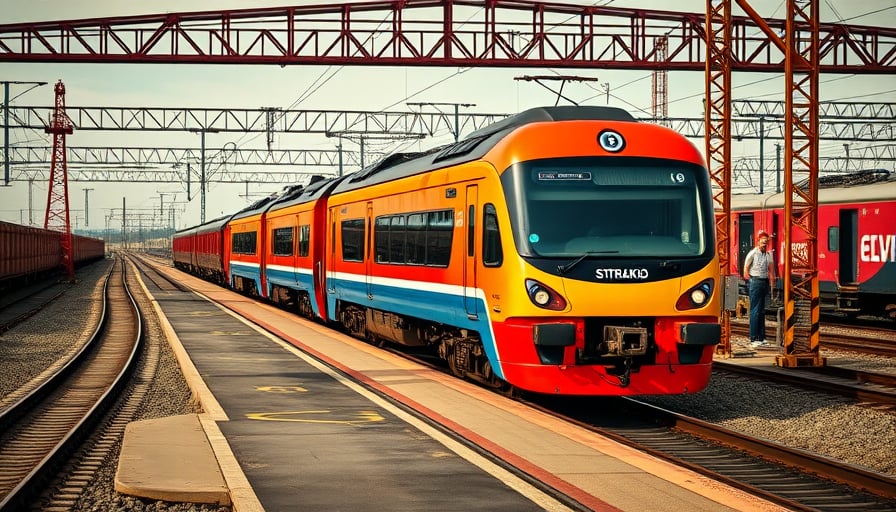Alstom Expands Workforce and Production Capacities in North America and Europe
Alstom SA, a leading entity within the global transportation industry, has announced a significant expansion of its manufacturing operations in response to a substantial new contract from New Jersey Transit. The company will increase staffing at its Plattsburgh, New York facility by approximately one hundred and twenty employees. This workforce augmentation is aimed at supporting the production of several hundred commuter‑rail cars destined for the New Jersey Transit network, a key public‑transportation operator in the United States.
In parallel, Alstom’s Derby plant in the United Kingdom has commenced the manufacture of electric train sets for the Elizabeth Line. The Elizabeth Line project, a flagship investment financed by the British government, is designed to enhance capacity on one of London’s busiest commuter corridors. By producing these electric train sets domestically, Alstom is reinforcing its supply‑chain resilience while contributing to the UK’s broader objectives of electrification and sustainability in rail transport.
Strategic Implications
- Market Diversification: The dual expansions demonstrate Alstom’s strategy to maintain a robust presence in both North American and European markets. By securing large contracts in distinct regulatory environments, the company reduces its exposure to regional economic fluctuations.
- Capacity Building: Adding 120 employees to the Plattsburgh facility is a clear signal of increased capacity, allowing Alstom to meet current demand and position itself for future orders within the U.S. market, where passenger rail investment is accelerating.
- Government‑Backed Projects: Participation in the Elizabeth Line project underscores Alstom’s alignment with government‑driven infrastructure initiatives. Such contracts often carry long‑term service agreements, providing steady revenue streams and opportunities for technology transfer.
Economic Context
- Infrastructure Spending: Both the U.S. and UK governments are channeling significant public funds into transportation upgrades. Alstom’s involvement places it at the nexus of this investment wave, benefiting from policy incentives and public‑private partnership frameworks.
- Electrification Trend: The push toward electric rolling stock aligns with global decarbonization goals. By producing electric train sets for the Elizabeth Line, Alstom positions itself as a key supplier in the transition away from diesel‑powered fleets.
- Labor Dynamics: Workforce expansion in the United States reflects broader labor market conditions, where skilled manufacturing roles are increasingly in demand. Alstom’s ability to attract and train talent may serve as a competitive advantage in securing future contracts.
Competitive Positioning
Alstom competes with major manufacturers such as Siemens Mobility, Bombardier (now part of Altra) and Stadler Rail. Its current strategy of securing large, high‑profile contracts in both continents enhances its reputation for reliability and technical expertise. Furthermore, by investing in localized production—Plattsburgh for U.S. commuter cars and Derby for the Elizabeth Line—Alstom mitigates supply‑chain risks and reduces lead times, critical factors for clients with stringent delivery schedules.
Conclusion
Alstom’s workforce and capacity expansions in Plattsburgh and Derby reflect a calculated effort to deepen its manufacturing footprint in key strategic markets. By aligning production capabilities with government‑backed transportation projects, the company strengthens its competitive position, leverages global infrastructure spending, and aligns with the broader industry shift toward electrified, sustainable rail systems.
